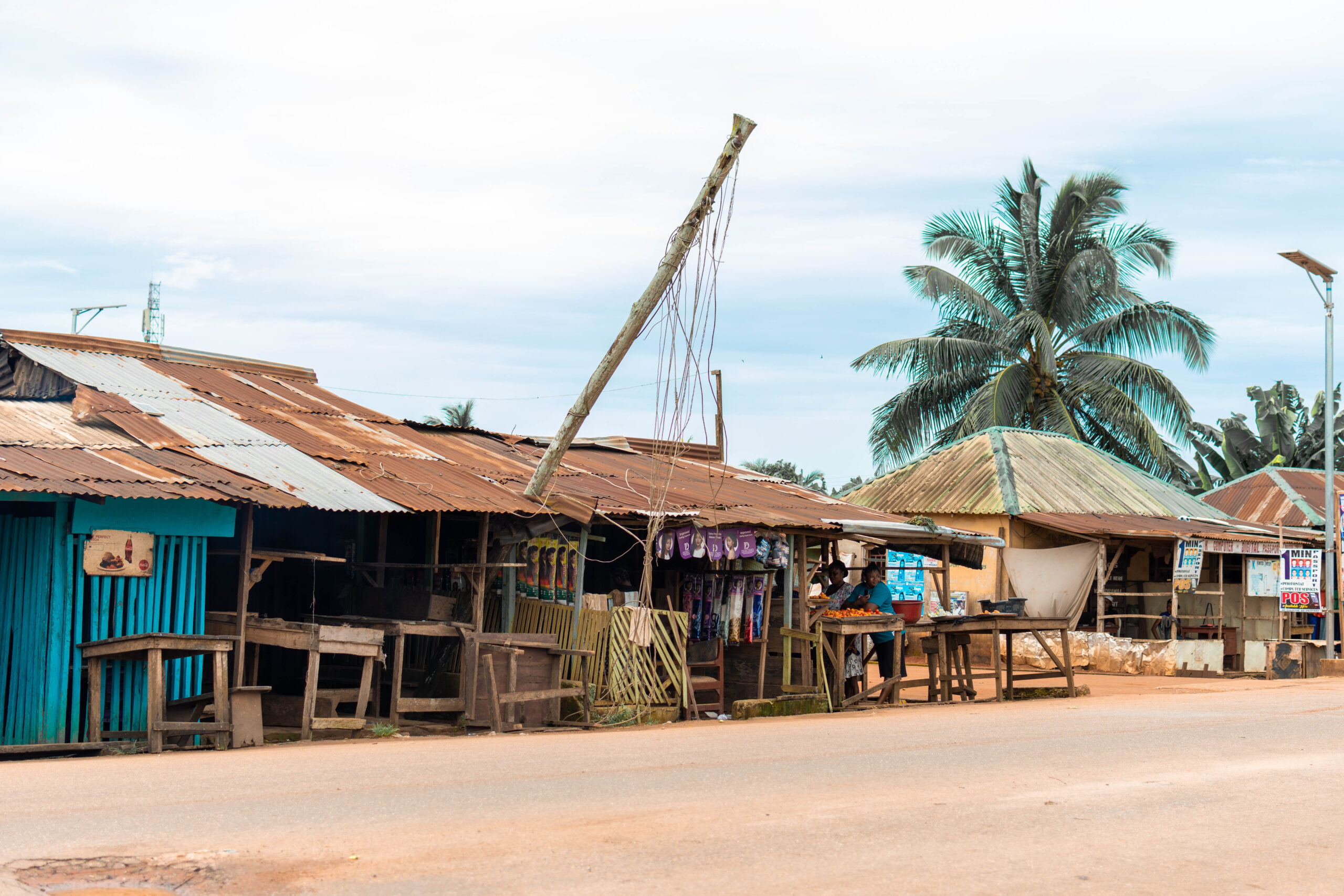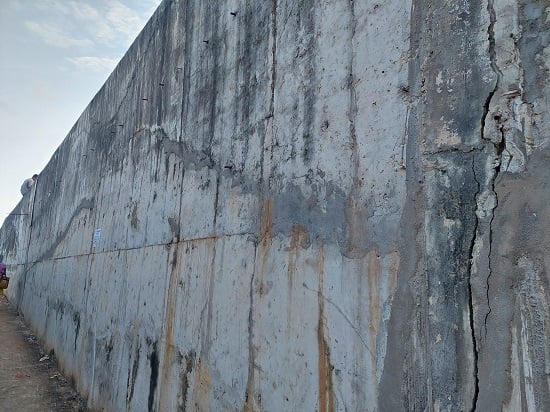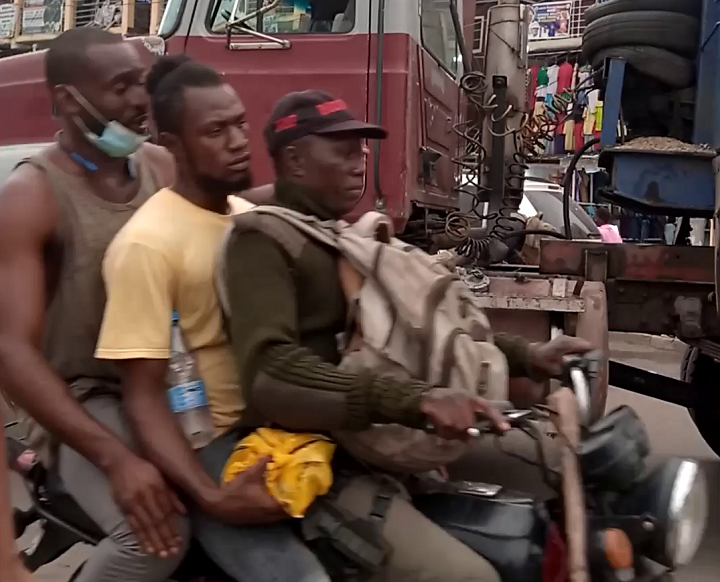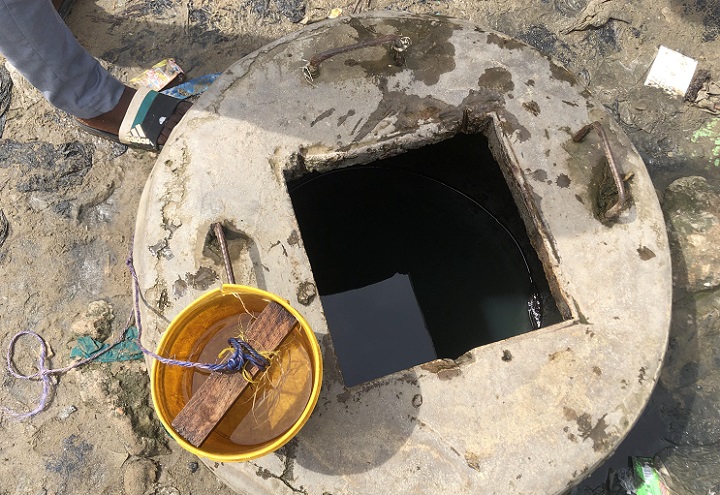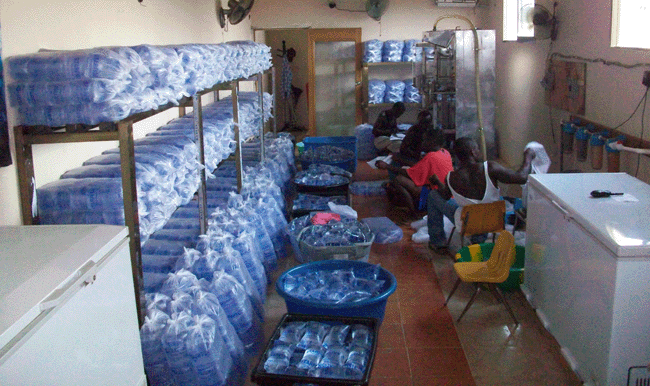Ondo, a south-west Nigerian state answers to the slogan “The Sunshine State,” but has millions of its people plunged in darkness. For almost two decades, a prominent district in the state has suffered the inhumanity of zero electricity supply. TAIWO ADEBULU examines the ongoing tussle for electricity in the Ondo south senatorial district and chronicles how a once-bustling economic hub was thrown off the national grid, snuffing out livelihoods, amid poor executive oversight of six-figure projects awarded to solve the problem.
Temitope Meshach is doused in flour, from her purple headwear to the matching apron, as she reaches for some blue food colouring. The baker is teaching an apprentice; and soon enough, both women have “Chelsea-blue” fingertips. The client is a fan of the English football club and wants to celebrate their birthday by paying homage to their team.
Beneath the small talk and open-air baking lessons lie an unseen urgency – Temitope has to finish the day’s business before nightfall. There is no electricity and she will incur no profits, and possibly danger, if she relies too much on her little generator, working late into the night.
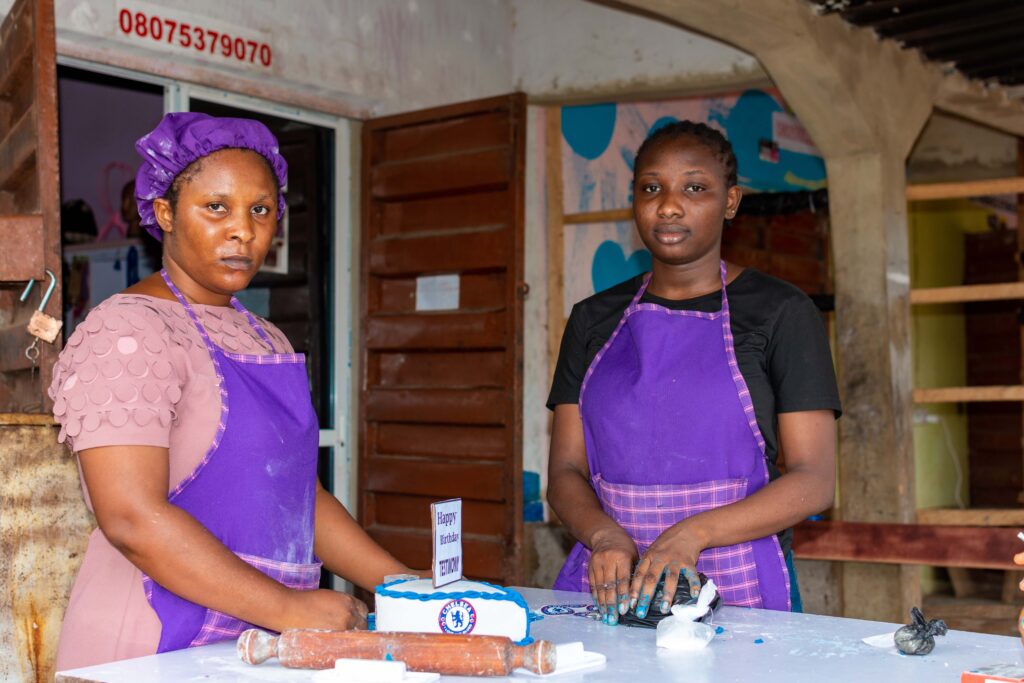
Meshach, the cake baker, has heavy equipment that requires adequate electricity to function. Her mixer and oven can produce four cakes at once, but she cannot use them because her generator has a lower capacity. So, she resorts to manual equipment that consumes more time and results in a single cake per day.
Advertisement
“The electricity crisis is really affecting my business. As a baker, you need quality electricity to make use of the mixer. We can’t use our generators because they cannot power the mixers and oven. We’ve abandoned the equipment and they are fast decaying. At home, we have freezers that the capacity of the generator cannot handle. I spend about N3,000 daily to power my generator at home and the office. I’m really hopeful that the light will be restored someday,” Meshach said.
Meshach is just one in a sea of hundreds of small business owners and thousands of households in Ondo south senatorial district who are forced to live off the electricity grid. Made up of six local governments area, namely: Okitipupa, Ilaje, Ese-Odo, Irele, Ile-Oluji-Okeigbo, and Odigbo, residents have been in darkness since 2014 when the areas were cut off from the national grid by the Benin Electricity Distribution Company (BEDC), Nigeria’s fourth largest power distributor.
Damilare Ojomo, a businessman along Broad Street in Okitipupa, said he had to put an end to his former trade because he could not sustain it without electricity. At the time the community was enjoying a constant electricity supply, he was selling iced-block to street traders who needed it to cool off their fizzy drinks.
Advertisement
“When we had constant electricity, my business was doing well. I made a lot of profits because I had electricity to power my freezers and sell enough products. As soon as the lights went off, I could not sustain the business again. There is no way I can power the freezers with a diesel generator. It’s just a petty business and I will run a loss. I had no other option than to sell the freezers and start a new business. Now that I sell animal feeds, my business does not require electricity. I close my shop before it gets dark and I go home,” Ojomo said.
On his part, Ayokunle Batisan, a multimedia producer, said he has resigned to fate. After years of struggle, he believes electricity can no longer be restored in the district. According to him, the amount his firm spends on fuel daily has impacted their production and cost of doing business.
“We spend N4,000 on fuel daily. Now, imagine how much we spend monthly. If there is light, we would have enlarged our business base, but we spend most of our profit on fuel. So, our expenditure is higher than our income,” Batisan said.
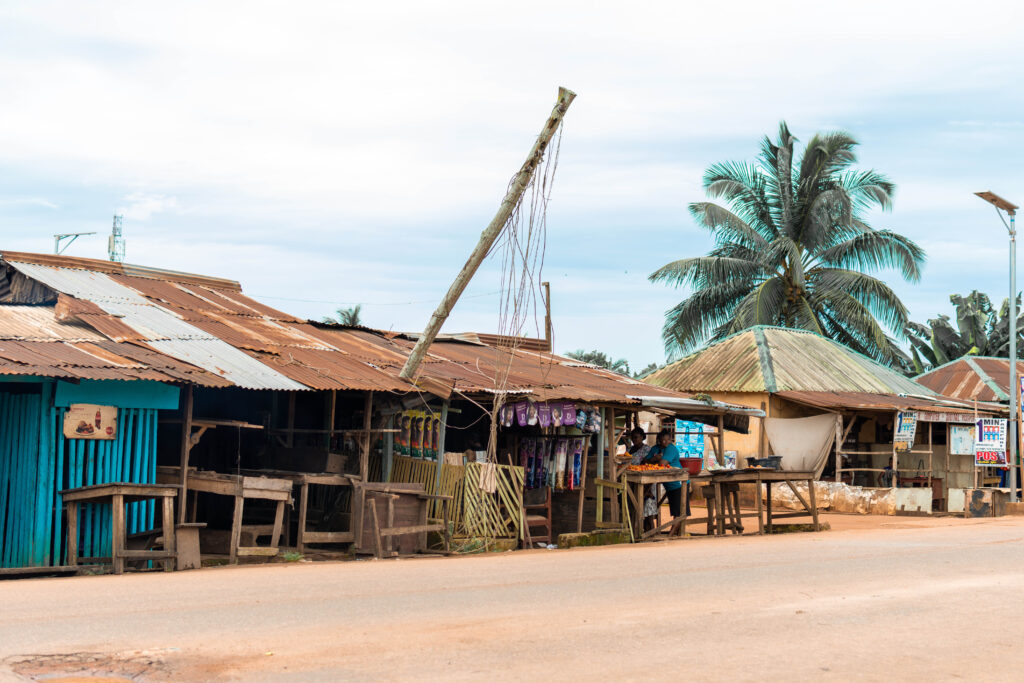
“We also spend money to service the generator. We are practically running our businesses at a loss. But we have no other option for survival in this terrible economy. I’ve lost hope. It’s over 10 years since the lights went off. Most of our little children have not seen public electricity before. But if by divine intervention the light is restored, the cost of our services will reduce and our customers will get respite.”
Advertisement
As early as the 1960s when Nigeria got its independence from Britain, the southern senatorial district of Ondo state was connected to the national grid and residents were enjoying a constant power supply. Hence, industries were established in the area and they flourished.
Michael Asogbon, a community leader, said the electrification of the area opened up the district to development, earlier than the people projected. He said the creation of industries led to the employment of most of the residents and led to the influx of people from other parts of the country.
“We had Oluwa Glass factory in Igbokoda, now moribund, supplying every part of the country with glass sheets. The materials were sourced locally within the district,” Asogbon said.
“An oil palm factory was also established in Okitipupa. It brought a lot of foreign investments into the area. Right, the company is still struggling after its initial closure and reopening. Now, we have a university situated in the district. As we speak, the few industries left in our area and the small-scale businesses are struggling to survive because they spend most of their finances on energy supply. Some companies have packed up and left. We have ghost communities where people can no longer afford to live in darkness.”
Advertisement
THE STRUGGLE FOR LIGHT
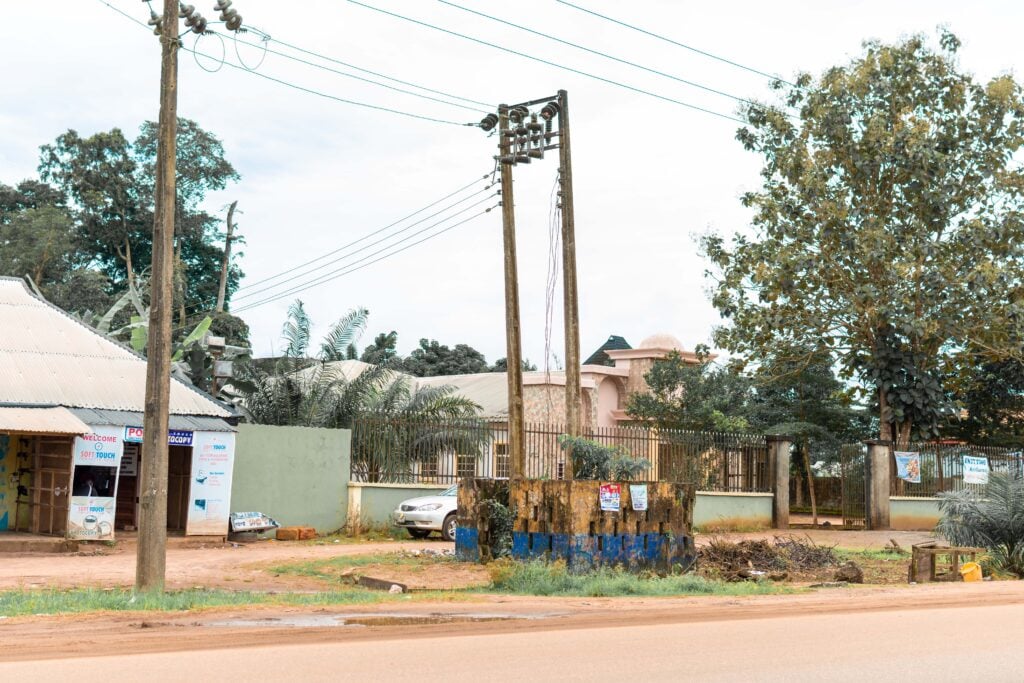
Some parts of the district, especially the coastal regions, have been disconnected since 2005. In December 2014, when the residents were preparing for Christmas festivities, the BEDC disconnected the whole district from the grid, without any warning, over alleged indebtedness of about N2 billion.
Advertisement
This spawned widespread protests, as well as petitions to government agencies and officials. Community leaders, groups, and religious associations also made attempts to end the electricity crisis, with no success. Olusegun Mimiko, former governor of the state, also failed to secure a resolution until the end of his tenure. Rotimi Akeredolu, the current governor of the state, has also made several promises to put an end to the darkness in the district. During a meeting in 2016 with officials of the distribution company, the community made a commitment to offset parts of the debt as a condition to get reconnected. But the BEDC said the Transmission Company of Nigeria (TCN) could not transmit electricity to its station as a result of damaged equipment.
The crisis birthed a people-led movement in the area – the Bring Back Our Light (BBOL) movement. Olumide Akinrinlola, the convener of the group, told this reporter in an interview that the distribution company did not engage the residents before disconnecting the whole district. He said the group started with consultation, consolidation, confrontation, protests, and later lobbying through influential Nigerians to get the issue resolved.
Advertisement
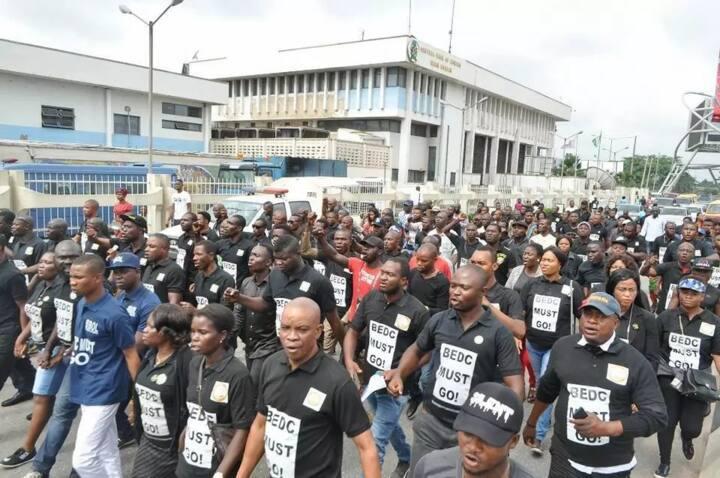
“We began the struggle with a peace meeting facilitated by Solomon Bitire, the caretaker chairman of Okitipupa LGA at the time, with Mimiko at the governor’s office in August 2015 which had all relevant stakeholders from Ondo south in attendance,” Akinrinlola said.
Advertisement
“BEDC gave the indebtedness of each LGA pre and post-privatisation era. We disagreed with the figures (electricity bills) levelled against all the local government councils. We insisted the figure was outrageous. Consumers who were not indebted to BEDC were also disconnected in 2014. Some communities in the LGAs that have not enjoyed electricity supply since 2005 were billed, and such bills were added to the indebtedness of the district by BEDC. We submitted samples of the billing history of communities without electricity supply over 10 years ago.
“Our findings revealed that electricity consumers in Ilaje LGA were having up to N2 million credit balances with BEDC. It means BEDC was indebted to the consumers even before the cutoff. Our report was submitted to the local government chairman, with a copy submitted to the BEDC office and the state government. Since then, nothing has happened.”
The residents moved the struggle to the office of the Nigerian Electricity Regulatory Commission (NERC). The commission summoned a meeting of all the stakeholders, including top management officials of BEDC, to its office in Abuja on July 6, 2017, to find a lasting solution to the crisis. According to Akinrinlola, the group tendered documentary evidence that the district was illegally disconnected.
“At the meeting, resolutions were taken by NERC and BEDC was directed to resume work and reconnect the affected communities immediately. NERC also said BEDC should reconnect us before talking about payment since they initially disconnected us illegally. NERC also said that both parties should reconcile the disputed debts two weeks after the resumption of BEDC at the site following the proof of illegal cut-off presented to NERC on July 6, 2017,” Akirinlola said, while he presented a copy of the NERC resolution to this reporter.
But the distribution company flouted the directive. Attempts to speak with the distribution company in charge of the district proved abortive as they did not reply to the message sent to the company’s official email address.
In 2018, the group dragged the distribution company to the presidency, and Vice-President Yemi Osinbajo, who doubles as the chairman of the board of Niger Delta Power Holding Company, waded into the matter and approved the rehabilitation of all the damaged electric cables.
Despite the renovations, the distribution company refused to connect the district, insisting on the same estimated billing method which had caused the initial accumulation of debt. The people asked for prepaid meters, but the company reportedly issued only a few. The result is that an inconsequential fragment of the people (an estimated five of over 100 communities) are presently connected to the grid.
“More than 95% of communities in the district are still in darkness because of BEDC’s refusal to provide enough meters and finish repairs in some areas. We have resisted every attempt by the company to restore electricity through an estimated billing system which is fraudulent in nature and unacceptable. Even when our people expressed their willingness to buy prepaid meters, BEDC didn’t make them available. Most of the affected communities are still suffering from the excruciating darkness caused by BEDC.” Akinrinlola said.

The BBOL convener, however, noted that there is hope that the district will be fully reconnected someday, with the construction of a transmission substation in the district and the repair of damaged electrical equipment by the federal government. Akinrinlola added that an uninterrupted power supply will attract development back to the district.
THE REA INTERVENTION
To ameliorate the hardship residents of the district were facing as a result of the age-long power outage, in 2017, the Rural Electrification Agency (REA) budgeted about N53.3 million naira for projects geared at restoring power supply to some parts of the district.
According to the REA’s capital projects within the 2017 appropriation budget, five items were listed for the electrification of the senatorial district. These projects include the provision of solar street lights, and transformers at the cost of N30.8 million, and the “restoration of light to Okitipupa/Irele” at the cost of N22.5 million.
More than five years after these projects were budgeted and awarded to some companies for execution, there is still no light in most communities spread across the district.
To verify the status of the projects, this reporter wrote a freedom of information (FoI) letter to the REA. The budget performance report mailed back by the agency indicated that all the projects have been awarded, funds released and they were marked “completed as awarded”.
This reporter travelled to the senatorial district to track down the projects that were marked “100% completed.”
At Laraba Crescent/Bamido Street in Igbotako, a N11.6 million street light project was awarded to a contractor (Island Expose Limited) on January 17, 2018. The REA document shows 15 units of solar lights were awarded to the contractor. A resident of the street, who identified himself as Tokunbo, said the two solar lights installed only worked for a few months. Thereafter, the area has been in perpetual darkness.
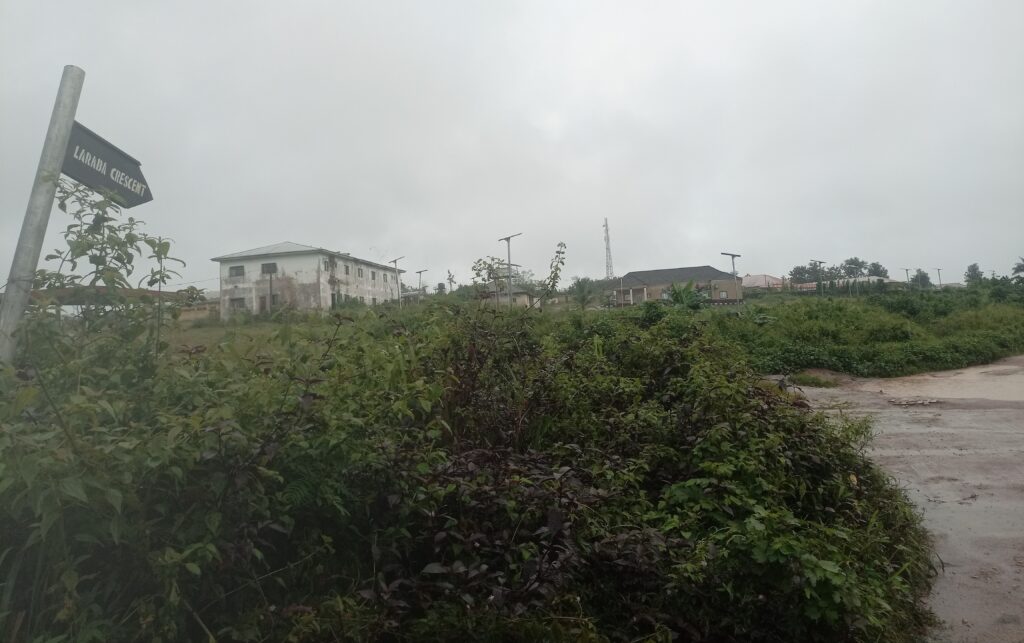
All other listed projects could not be located because no specific location was provided by the agency. The residents could not also pinpoint where fresh transformers or other electrical equipment were installed in the area in the period under review. Moreover, the details of the contractors were shrouded in secrecy.
An email was sent to Ayang Ogbe, REA’s director of promotions, asking for specific details of the projects. The message was acknowledged, but information about the electricity projects was not provided.
Speaking on the development, Kunle Olubiyo, president of Nigeria Consumer Protection Network, said the “missing gap” in the REA project implementation is that there is no specific individual or body that is legally empowered through the law to carry out monitoring and evaluation.
“Most of these projects come via constituency projects, so whoever is going to be the judge of the public account equally has his or her own constituency project. But it is very critical and important that there should be a body in charge, because where public funds are spent and there’s project mileage, there needs to be project appraisal. There’s no act of parliament to ensure that. The implication of the unexecuted projects in rural areas is that it will deny the communities of the benefit of universal access to energy and we know the significance of energy in Nigeria.”
When asked why most distribution companies flout orders from the NERC, Olubiyo said most of the challenges in the electricity sector can be traced to systemic corruption.
He said, “We need an incorruptible arbiter. The present situation we have at hand is a result of not having a firm and incorruptible regulator in NERC. If you take a decision that can instill sanity, the DisCos put pressure on the NERC and it backtracks.”
WHY MOST NIGERIANS DON’T PAY FOR ELECTRICITY
Estimated billing, popularly called ‘crazy billing’ in Nigeria, is an unconventional system of charging customers for energy consumed in the previous month, without considering metered usage. Energy consumption in a particular area is calculated and distributed among consumers, hence most consumers often pay beyond what they used. In the estimated billing system, if a resident is absent from their property and doesn’t consume electricity, they still get billed.
Nigeria has a huge metering gap. The latest data from the NERC shows that out of 11,058,939 registered energy customers in the country, only 4,529,497 (40.95%) have access to prepaid meters.
“This implies that out of every ten (10) registered electricity customers, six (6) are without meters and are on estimated billing,” the NERC said in its latest quarterly report.
The report shows that most Nigerians are placed on estimated billing, a situation that experts and observers in the industry believe is a ploy by the private distribution companies to rip off consumers amid high tariffs and poor electricity supply. Despite numerous programmes introduced by the government to fast-track the distribution of prepaid meters, the companies are foot-dragging on the process.
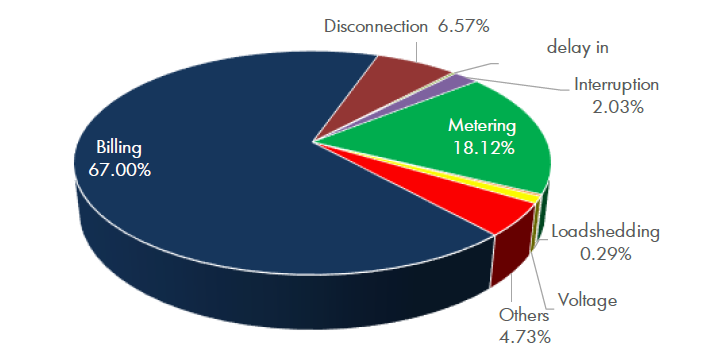
The NERC says estimated billing and metering issues are the major complaints received from electricity customers. This has contributed to customer apathy towards payment of electricity bills. For example, the distribution companies issued a bill of N542 billion for a period of six months, but consumers only paid N369 billion. Consequently, the companies often cut the power supply to homes or areas where the huge bills are not paid for.
In local communities in Ondo south, some consumers have resorted to the use of solar energy, which is mostly exclusive to the rich, while others make use of low-capacity petrol generators.
Despite efforts by the state government and the residents to get the senatorial district connected to the national electricity again, that may be a long way to freedom. The refusal of the power firm to provide prepaid meters to the people may hinder the ongoing struggle and prolong the darkness in the oil-rich area.
Add a comment

